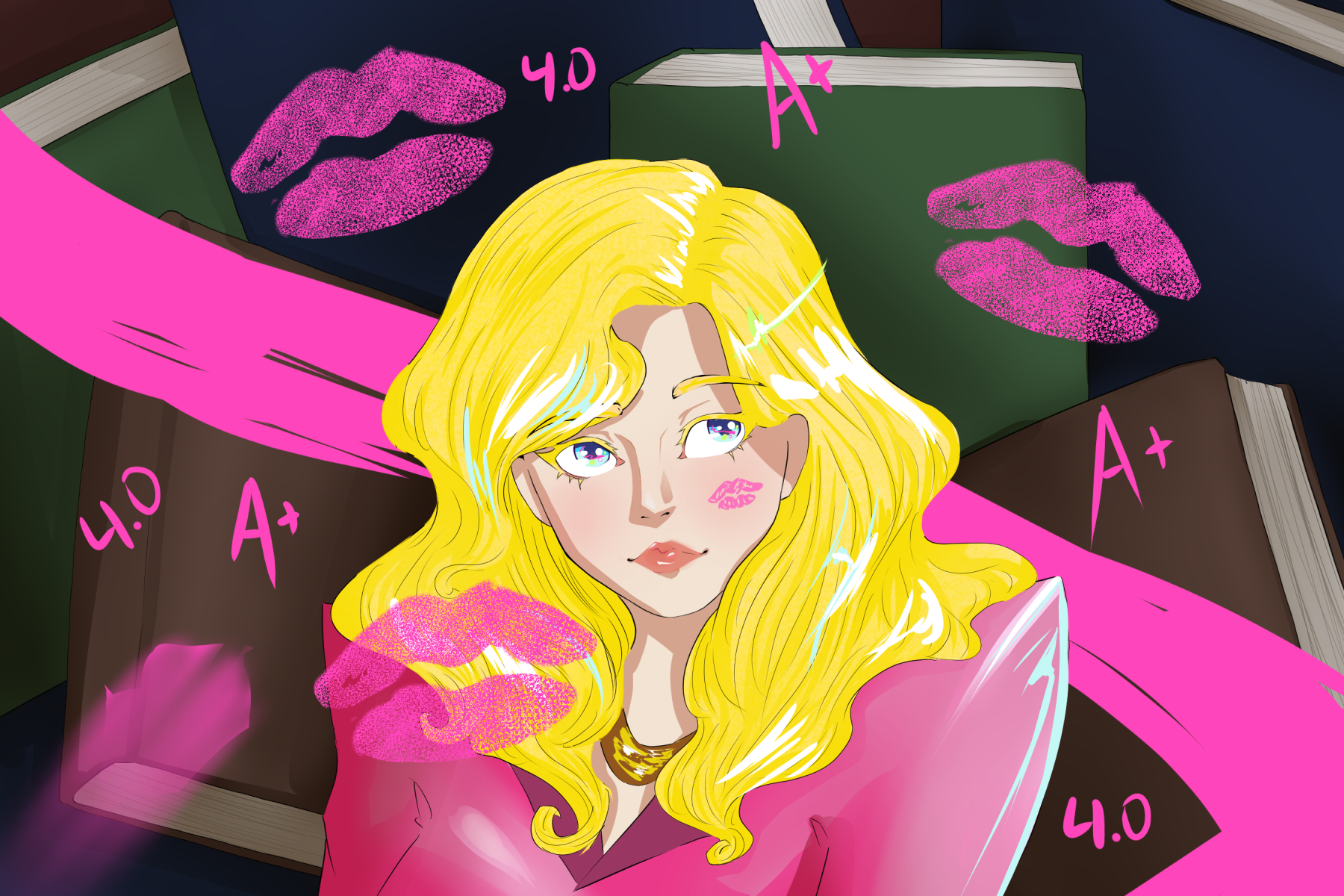From Marilyn Monroe to Paris Hilton, the term ‘bimbo’ has always been an insult. Defined as “an attractive but unintelligent or frivolous young woman,” the slur diminishes, objectifies and sexualizes women while reinforcing the idea that feminine, attractive women cannot be intelligent. Despite its misogynistic connotations, the word ‘bimbo’ is now being reclaimed and embraced by Gen Z on TikTok. The newly reclaimed definition of ‘bimbo’ embraces femininity, sexuality and self-love while dismantling and mocking sexist and conservative views.
This is not the first time a derogatory term has been reclaimed by a marginalized group. For example, the LGBTQIA+ community has reappropriated slurs like “queer” and “d**e,” turning them into positive identifiers of pride and self-expression. For the creators of BimboTok, ‘bimbo’ is a term of empowerment, exemplifying that it’s possible to be funny and politically engaged while still embracing one’s feminine side.
So, Like, What Does It Mean to Be a Bimbo?
TikTok creators Griffin Maxwell Brooks and Chrissy Chlapecka pioneered the newly reinvented definition of ‘bimbo.’ Brooks explains that being a bimbo means to be “radically inclusive,” and Chlapecka exemplifies bimboism as “a radical leftist who’s pro-sex work, pro-Black Lives Matter movement, pro-LGBTQ+, pro-choice” and anti-capitalist. In addition to their political views, bimbos also “celebra[te] their femininity and embra[ce] all parts of themselves and their self-love journey.” The movement is inspired by 2000s icons such as Paris Hilton, Britney Spears, Dolly Parton and even the fictional character Cher Horowitz from Clueless, with self-proclaimed bimbos dressing in their definitive styles and adopting their character traits.
Often, BimboTok creators embody a satirical and ironic bimbo persona. As is evident in Chlapecka’s videos, she adopts a hyperfeminine appearance, speaking in a high-pitched, falsetto voice and donning 2000s era fashions such as tracksuits, miniskirts and glitter. In a video with over 3.5 million views, Chlapecka informs viewers that, “No man is worth the struggle. Every guy is literally just a guy. Steal his credit card info!” The absurd and misandrist humor is satirical, yet also manages to illustrate that bimboism is not for the male gaze. Amid a patriarchal society, bimboism can provide a refreshing and empowering respite for women.
In YouTuber Mina Le’s video, she voices that “growing up in the 2000s, a lot of girls were conditioned to suppress their femininity” as it was deemed uncool and superficial. She continues that “the main point of bimbocore is to just have fun, it’s a vibe without anyone’s opinions affecting who you wanna be.”
Politics, Like, Actually Explained
Nikitadumptruck, the self-proclaimed “professor at bimbo university,” uses slang and pop-culture references to explain politics and economics. In one of Nikita’s viral videos with over 4.5 million views, she explains the issue of the BRICS currency versus the U.S. dollar by referencing the movie “Mean Girls.” She calls the U.S. “Regina George” and the G7 countries “The Plastics,” drawing parallels between the movie’s social hierarchy and the world’s economic power structure. While one could argue that this approach seems to oversimplify the issue, Nikita makes such complicated political and economic issues accessible, approachable and engaging to Gen Z. Through her slang and bimbo persona, she simplifies and draws connections between current events and pop culture that truly educate young people.
The Not So Girlboss Sides of BimboTok
Despite its popularity, individuals still criticize TikTok’s reinvention of the ‘bimbo.’ For one, BimboTok’s most popular creators are all white, blonde and skinny; the demographic makeup of the bimbo population doesn’t seem to represent the inclusivity its members preach. Alongside this, one can also question if bimboism truly aligns with leftist ideology. BimboTok influencer BrattyBarbiana posted a video of her dancing behind text that read: “Rule of thumb: All relationships should be 50/50… He works for his money, I spent it!” The idea of women depending on men and only caring about shopping seems to reinforce the conservative, sexist stereotypes about women that the bimbo movement intends to oppose. Such instances blur the line between humor and sexist ideology, raising questions about whether society can be truly free of chauvinist viewpoints.
Okay, So Like … What’s the Point?
Bimbo was once a negative slur, yet in the context of TikTok, it’s a reclaimed identity that highlights femininity and being one’s self. Through slang and a bimbo-persona, creators like Nikitadumptruck can make politics and economics more approachable and relevant to Gen Z. By reclaiming the term ‘bimbo,’ individuals are challenging traditional gender norms and demonstrating that femininity and intelligence are not mutually exclusive.
But what about its dearth of individuals from underrepresented groups and borderline sexist ideology? Meredith Suzuki, who identifies as a queer individual of color, voices that “rather than feeling excluded from the conversation, I wanted to set an example.” She elaborates that embracing bimboism “feels powerful and liberating,” and “nothing makes misogynists angrier than women choosing to be hot, appearing dumb and yet being incredibly self-aware.” The bimbo movement has already expanded and diverged into a diverse range of niches, from goth bimbos, cottage-core bimbos and even the subsection of ‘himbos.’ It’s ultimately admirable that the once-misogynistic slur has transformed into an empowering, feminist identity.

















